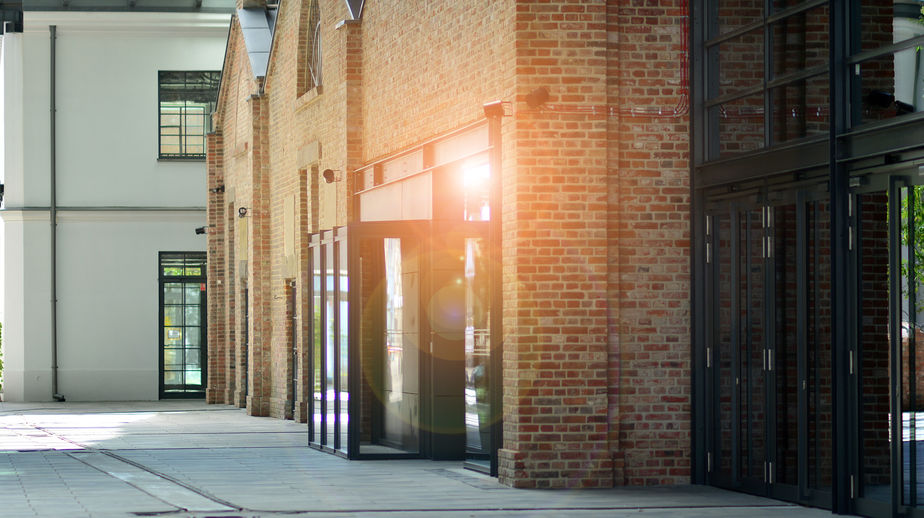Whether you’re a landlord or a tenant, it’s important to know what type of protection is needed for a commercial property. The landlord and the tenant should both have some protection. Landlords will most often have specific requirements for what a tenant needs to have in the lease. We’ll take a deep dive into commercial insurance in this blog, so keep reading.
When it comes to insuring your commercial property as a landlord or insuring your business as a tenant, you should be aware of a few things.
Commercial Property Insurance and General Liability Coverage
Every landlord should have some type of insurance to help provide protection. While standard landlord/property insurance is good, it only typically provides protection regarding the damage of the property. It’s important that landlords who own commercial properties have insurance that includes property protection as well as general liability coverage. When it comes to general liability coverage, this typically provides protection if someone should be injured on the property as well as protection for damaged property. It can also include providing coverage if you should be sued because of an injury. General liability protection often also includes coverage regarding suits involving libel or infringement to a copyright.
As a landlord, you probably require tenants to have general liability coverage and may be wondering why you need it as well. In some cases, people will go after the landlord instead of the tenant because they’re seen as a “bigger fish” with more funds. It’s important to have coverage if this happens. It’s also important to have the tenant list the landlord on their general liability insurance so there is further coverage. The other reason to have general liability coverage is if someone gets injured on the property in an area that isn’t covered by the tenant’s insurance. For example, what if they fall outside on the sidewalk that isn’t deemed part of the business property? This could fall under the landlord’s general lability coverage instead of the tenant’s.
A business owner’s policy can be a great choice for both landlords and tenants, especially for small businesses trying to save some money. It bundles both commercial property insurance and the general liability coverage into one policy. This is generally more affordable then buying separate insurance policies. Just make sure it offers the coverage you need.
Business Interruption/Income Insurance
Another insurance coverage that is important for tenants and landlords to have is business interruption/income insurance (this should be included in a commercial landlord insurance policy). If the worst should happen and a business has to shut down for a period of time, it can help provide payment for any lost expenses. This allows tenants to continue paying their rent, which also helps the landlord. Many landlords require this type of insurance to ensure that they don’t lose rent in a worse case scenario. It’s also helpful for landlords to have since it can provide protection for them if a property needs fixing or rebuilding and they’re unable to rent it out during this time.
Auto Insurance for Businesses
Commercial auto insurance is another coverage that can be good to look at if the landlord or the tenants have automobiles that their staff drives. In fact, landlords often require that tenants include them on their commercial auto insurance in case something should happen and the injured party ends up going after the landlord in a legal battle.
Errors and Omissions (E&O) Insurance
Landlords may also want E&O insurance. This type of insurance helps to protect them in case there is an error on the lease or a tenant feels mislead. If the tenant comes back and files a suit against the landlord because they feel there was misinformation provided, then this can help provide protection. Even if the landlord wins the battle, lawsuits can cost a pretty penny.
Additional Protection
When it comes to finding the right coverage, it’s important to ask exactly what your insurance includes. You may find you want to buy additional insurance if your property is located in area predisposed to floods, hurricanes, or earthquakes, since these things aren’t often included in a standard policy.
How is the Price Figured Out?
What you pay into insurance will obviously have to do with how many policies you need and many additional factors. The size of your business, where it is located, the type of business, and how many previous claims you’ve placed will impact the price that you pay. Even the amount of people employed under you will impact the total cost. How well the property is maintained and updated can also affect the pricing. It’s important for landlords to keep a list of updates especially when it comes to things such as wiring, HVAC, and plumbing so that they can show the insurance provider. You can see why insurance coverage pricing can vary greatly. It’s important to talk with an experienced broker and discuss your options and find coverage that provides the right protection within the correct price point.
If you’d like further help with your investment property, reach out to us at PMI. While we don’t sell insurance, we do work hard to help you find the right tenants, create competitive pricing, market your property, and much more!



